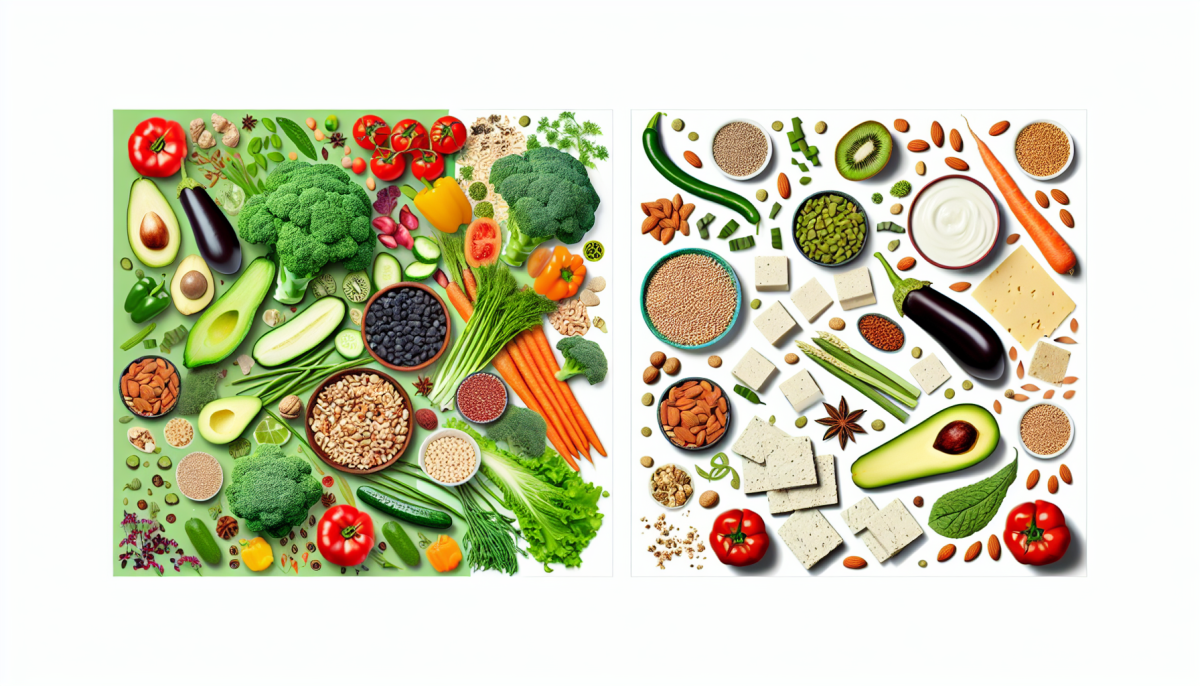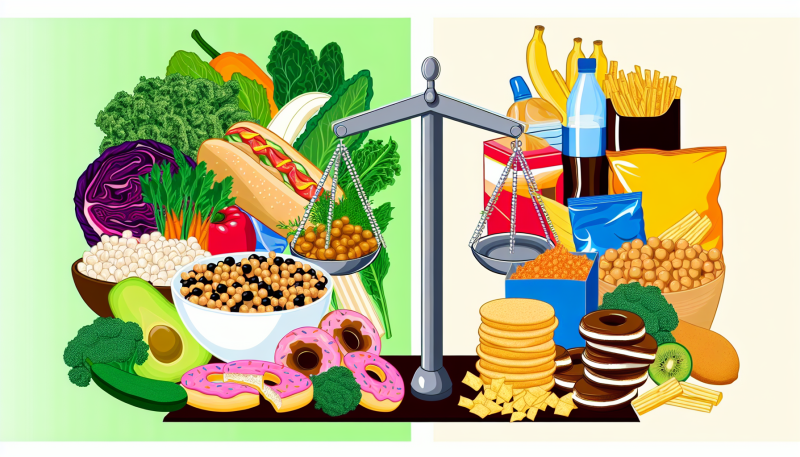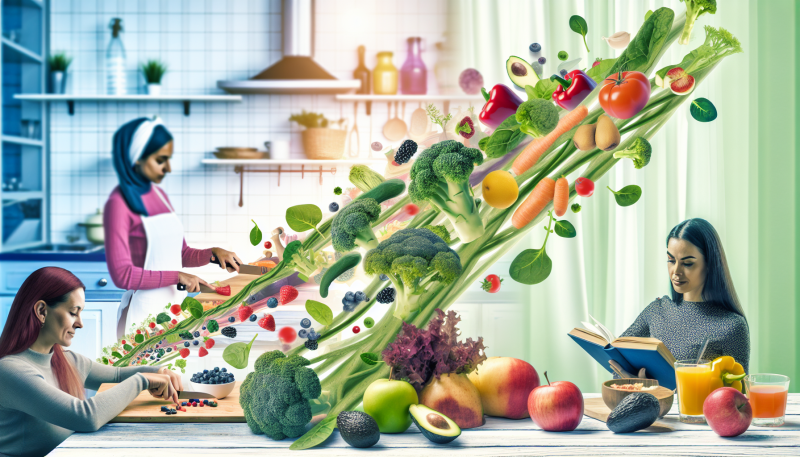Adopting a vegan lifestyle goes beyond just a diet; it encompasses a commitment to avoiding animal products in all aspects of life. This means choosing foods, clothing, and personal care items that align with vegan principles. While many people may associate being vegan strictly with food choices, it’s essential to understand that veganism is a broader lifestyle choice. This distinction is crucial when considering the differences in the debate of vegan vs plant based.
In the kitchen, vegan essentials typically include a variety of fruits, vegetables, grains, legumes, nuts, and seeds. Many vegans also enjoy plant-based alternatives such as almond milk, tofu, and vegan cheese. These products are often developed to provide the same taste and texture as their animal-based counterparts, making it easier for individuals to transition to a cruelty-free diet. This focus on a diverse diet is one of the reasons why those who identify as vegan may have a different approach compared to those who are strictly plant-based.
Beyond food, the vegan lifestyle also extends into fashion and beauty. Vegan-friendly merchandise includes clothing made from organic cotton or synthetic materials that do not involve animal products. Similarly, many cosmetics brands offer cruelty-free and vegan options that do not test on animals or contain animal-derived ingredients. By recognizing these choices, it becomes evident that discussing vegan vs plant based reveals critical differences in lifestyle commitments beyond dietary habits.
Another key aspect of a vegan lifestyle is community engagement. Many vegans seek out social connections, support groups, and online communities focused on vegan living. They actively participate in events, workshops, or campaigns aimed at promoting animal rights and environmental sustainability. This sense of community plays a significant role in reinforcing their lifestyle choices and distinguishing veganism from a simpler plant-based diet that may not include the same level of advocacy.
Understanding Plant Based Choices
When diving into the world of diet and lifestyle choices, many people encounter the terms "vegan" and "plant based." While they may sound similar, understanding the differences can help clarify what each lifestyle entails. The phrase "vegan vs plant based" often arises in discussions, and it's important to note that these terms are not interchangeable.
A vegan diet excludes all animal products, which means no meat, dairy, eggs, or honey. However, being vegan doesn't just stop at diet; it often extends to a lifestyle choice that avoids animal exploitation in all forms, including clothing, cosmetics, and other products. Vegans typically embrace ethical and environmental considerations, advocating against animal cruelty and the impact of animal farming on the planet.
On the other hand, a plant-based diet primarily focuses on eating foods derived from plants. This includes vegetables, fruits, grains, nuts, and seeds. While many who follow a plant-based diet may also exclude meat and animal products, the primary motivation might be health-related rather than ethical. People who choose this lifestyle often aim to improve their overall health and well-being by incorporating more nutrient-dense plant foods into their meals.
Thus, while there is some overlap between vegan and plant based, the motivations and approaches can differ significantly. The conversation about vegan vs plant based highlights the diversity of choices available to those looking to adjust their eating habits. Understanding these distinctions can empower individuals to make informed decisions that align with their personal values and health goals.
Health Benefits of Both Diets
When exploring the vegan vs plant based diets, it's essential to consider the health benefits that both approaches offer. Each diet emphasizes the consumption of plant foods, which are rich in essential nutrients, fiber, and antioxidants. These components are linked to various health benefits, including improved heart health, better digestion, and a reduced risk of chronic diseases.
One of the primary advantages of both diets is their potential to lower the risk of heart disease. Diets high in fruits, vegetables, whole grains, and legumes can help manage cholesterol levels and lower blood pressure. Studies suggest that adopting either a vegan or plant based approach can contribute to healthier arteries, ultimately leading to a stronger cardiovascular system.
Furthermore, both diets are often associated with weight management. By focusing on whole, minimally processed plant foods, individuals may find it easier to maintain a healthy weight. These foods are generally lower in calories and high in fiber, which helps promote satiety. As a result, those following a vegan vs plant based diet may experience weight loss or maintenance without feeling deprived.
Finally, the abundance of vitamins and minerals found in fruits and vegetables can enhance overall health. Diets rich in these foods are known to support immune function, improve skin health, and provide energy. Whether you choose to embrace a strictly vegan lifestyle or a more flexible plant based approach, both diets advocate for a nourishing intake of plant-derived foods that can significantly benefit your well-being.
Common Misconceptions About Each Diet
When discussing vegan vs plant based diets, it's important to address some common misconceptions that often surface. Many people conflate these two approaches, leading to confusion. For instance, some believe that all plant-based diets are inherently vegan. While plant-based diets focus primarily on consuming whole, natural foods derived from plants, they may occasionally include some animal products or by-products, unlike a strict vegan diet which eliminates all animal-derived items.
Another misconception is that a vegan diet is automatically healthier than a plant-based diet. While both diets emphasize fruits, vegetables, grains, and legumes, a vegan diet may still include highly processed foods, sugary snacks, and unhealthy fats. On the other hand, a plant-based diet encourages a more whole-foods approach, which emphasizes nutrition and health benefits. Therefore, one can adopt a plant-based diet that is much healthier without adopting full veganism.
A frequent belief is that following a vegan or plant-based diet is too expensive or difficult to maintain. In reality, both diets can be budget-friendly. Whole foods like beans, rice, and seasonal vegetables are often less costly than processed foods or meat. Cooking at home using simple recipes allows individuals to enjoy these diets without overspending. Many resources online also provide accessible meal planning ideas, making it easier for everyone, regardless of budget, to explore vegan vs plant based options.
Lastly, some think that following a vegan or plant-based diet means giving up all favorite foods, such as cheese or desserts. However, the food industry has expanded tremendously, offering a wide range of alternatives and substitutes that cater to both diets. From dairy-free cheeses to plant-based ice creams, people can enjoy their favorite flavors without compromising their dietary choices.



